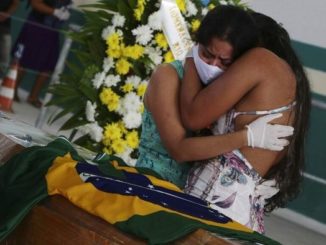
With the presidential elections 2017 in Chile approaching, The Santiago Times takes a look at what’s at stake. Which topics dominate the campaigns of the candidates? What can we expect from our future president? Today: Foreign Policy.
Foreign-policy issues rarely make for sexy campaign topics. Education, health, and pensions simply constitute more acute concerns for the citizenry. Still, the next president will have to perform in the international theatre as well, especially on the regional stage and across the Pacific.
China constitutes a key focus. The foreign-policy establishment perceives Sino-Chilean relations as signature success, so Beijing is courted without second thoughts. Yet, due to steady economic growth (and ‘America First’), China will assert its interest more forcefully, especially in the South China Sea and in countries that are integral to its ‘Belt and Road’ initiative. Hence, Chile’s next president may face choices like supporting either China for the sake of economic development and at the cost of credibility as a human rights defender, or endanger the bond with China and thus economic growth by supporting democracies like South Korea that feel the heat from Beijing. Such choice is complicated by Chile’s already extreme dependence on China’s market, so ‘bad weather’ diplomacy becomes crucial. Sweeping human rights violations under the rug of Twitter propaganda amidst intensifying crackdowns on human rights lawyers, journalists, and ethnic minorities won’t work forever. Without human rights, ‘peace’ rings hollow. The next president will also have to decide how much influence China has in domestic affairs. It’s a myth that China doesn’t meddle in domestic politics, and key Chilean representatives already dropping the term ‘Taiwan’ for ‘Chinese Taipei’ suggests either substantial influence or anticipatory obedience. So far, the matter hasn’t been subject to debate among candidates.
ST Elections Exclusive: The Presidential Candidates Part 1
In regional matters, Venezuela will evolve into a major flashpoint. The Maduro government will either consolidate into a post-democracy with elections but no politics, or it will fall and in the worst scenario trigger civil war. Either way, Chile’s new government must prepare for an intensifying humanitarian catastrophe and many refugees. A sensible strategy would continue the current approach of mediation and fomenting dialogue, while insisting on re-establishing democracy. It should, however, also include Cuba more.
Sebastián Piñera as president, together with Brazil and Argentina, likely would court segments of the opposition and so antagonize the government, which would consolidate the dictatorship even more and hand more influence to Russia, China, and Iran, all of which have good relations with Chile, but for whom Venezuela constitutes a far more important actor. Candidate José Antonio Kast, showcasing his extreme-right populism and shortsightedness, has proposed to cut ties with Cuba and Venezuela altogether. But this would also dissolve Chile’s influence, while Santiago would still have to deal with consequences like refugee flows or violent conflict. The centre-left candidates, Alejandro Guillier and Beatriz Sánchez, would likely follow the current approach, and have to walk the fine line between the extreme-right in Brazil and Argentina and the faux-socialist dictatorship in Venezuela. Stalinist candidate, Eduardo Artés, and Alejandro Navarro of MAS, have pledged full support for Maduro, which may improve relations initially, but could prove damaging when further crimes of Caracas emerged, or opposition parties were to take power.
ST Elections Exclusive: The Presidential Candidates Part 2
Generally, world order will become more authoritarian. International institutions will become battlegrounds for re-ordering power relations between rising and established players. Chile’s next president therefore must comprehend that the foreign service cannot just focus on negotiations but also on their systemic, political-economic context. Skilled politicians may not be able to solve all crises, but they owe the country explanations on how the international impacts on citizens’ lives, and accommodate the resulting feedback.



